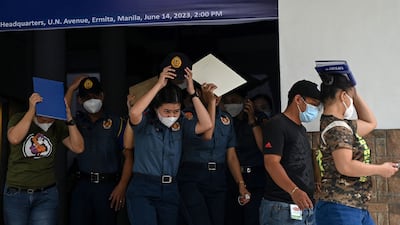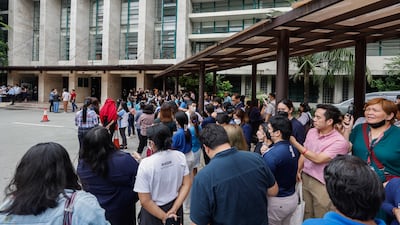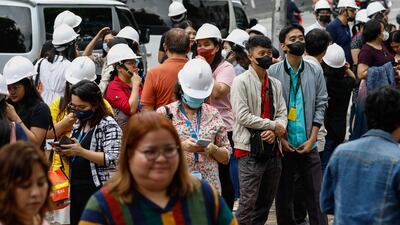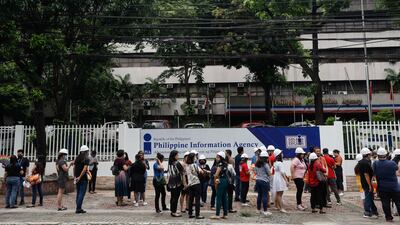A magnitude-6.2 earthquake struck the Philippines early on Thursday, the US Geological Survey said.
Local authorities have warned of aftershocks and possible damage.
The earthquake struck at a depth of 124km at about 10am local time in waters about three hours' drive from the capital, Manila.
Calatagan municipality police chief Emil Mendoza said he and his staff rushed outside following the tremor, which was also felt across the country's heavily populated heartland, including Manila.
“It was a bit strong. We had to run outside,” Mr Mendoza told AFP.
There were no immediate reports of casualties or damage, he said.
Calatagan disaster officer Ronald Torres said the quake lasted between 30 seconds and a minute.
The earthquake sent people rushing out of buildings in the capital.
Diego Mariano, information officer at the Civil Defence Office, said authorities were assessing the effects of the quake.
“As of now, no major damage or casualties as of reporting time. Assessment still ongoing,” Mr Mariano said.
Quakes are a common occurrence in the Philippines, which sits along the Pacific “Ring of Fire”, an arc of intense seismic and volcanic activity that stretches from Japan through South-East Asia and across the Pacific basin.
In October 2013, a magnitude-7.1 earthquake struck Bohol Island in the central Philippines, triggering landslides and killing more than 200 people.
Old churches in the birthplace of Catholicism in the Philippines were badly damaged. About 400,000 were displaced while tens of thousands of houses were damaged due to the quake.







